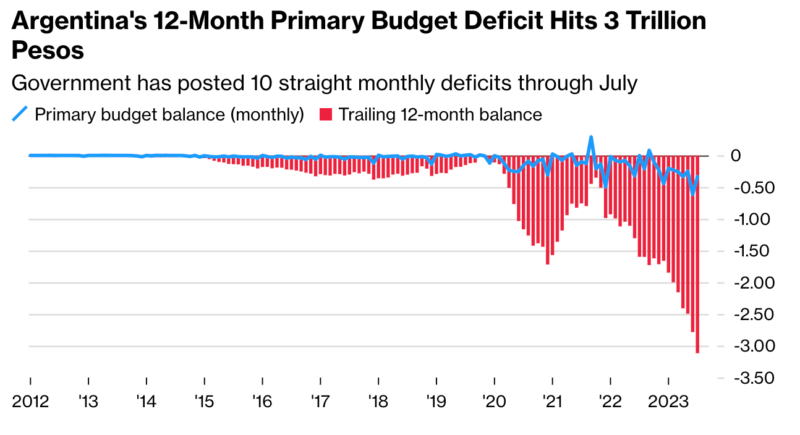Category Archive: 6b) Austrian Economics

What Can We Learn from the Latest Pentagon Audit? Both Plenty and Not Much
Tu ne cede malis, sed contra audentior ito
Website powered by Mises Institute donors
Mises Institute is a tax-exempt 501(c)(3) nonprofit organization. Contributions are tax-deductible to the full extent the law allows. Tax ID# 52-1263436
Read More »
Read More »
The Double-Edged Sword of School Choice
Tu ne cede malis, sed contra audentior ito
Website powered by Mises Institute donors
Mises Institute is a tax-exempt 501(c)(3) nonprofit organization. Contributions are tax-deductible to the full extent the law allows. Tax ID# 52-1263436
Read More »
Read More »
The “New” South Africa Is Now a Newly-Failed State: Don’t Look for Things to Improve
Tu ne cede malis, sed contra audentior ito
Website powered by Mises Institute donors
Mises Institute is a tax-exempt 501(c)(3) nonprofit organization. Contributions are tax-deductible to the full extent the law allows. Tax ID# 52-1263436
Read More »
Read More »
How Governor Whitmer Doomed Detroit Autoworkers
Tu ne cede malis, sed contra audentior ito
Website powered by Mises Institute donors
Mises Institute is a tax-exempt 501(c)(3) nonprofit organization. Contributions are tax-deductible to the full extent the law allows. Tax ID# 52-1263436
Read More »
Read More »
Highway Robbery Continues to Be the Law of the Land
Seizure fever is toxifying law enforcement across the nation. For more than thirty years, federal, state, and local government agencies have plundered citizens on practically any harebrained accusation or pretext.
You could be at risk of being pilfered by officialdom anytime you sit behind a steering wheel. Between 2001 and 2014, lawmen seized more than $2.5 billion in cash from sixty thousand travelers on the nation’s highways—with no criminal...
Read More »
Read More »
Who Hijacked Our Free Will?
Imagine someone giving a State of the World address that begins with a reminder that people possess free will and ought to be doing a better job of exercising it. This could possibly raise doubts about the speaker’s mental stability—at least until the talk went into the dark details of civilization’s condition.
Read More »
Read More »
Is Taiwan a De Facto Sovereign Nation or a Province of the PRC?
The “One-China” policy assumes Taiwan to be a runaway province. The people of Taiwan, however, see their country as sovereign, and their reasons have merit.
Original Article: Is Taiwan a De Facto Sovereign Nation or a Province of the PRC?
Read More »
Read More »
What Can We Learn from the Latest Pentagon Audit? Both Plenty and Not Much
Another Pentagon audit, another massive failure. But the Pentagon's problems are not just simple accounting. They reflect the reality of an unaccountable rogue empire that tries to prop up the US empire.
Original Article: What Can We Learn from the Latest Pentagon Audit? Both Plenty and Not Much
Read More »
Read More »
The Double-Edged Sword of School Choice
School choice would seem to have benefits, but as Thomas Sowell says: “There are no solutions. There are only trade-offs.” Enthusiastic “school choice” proponents forget that with government money comes government control.
Original Article: The Double-Edged Sword of School Choice
Read More »
Read More »
Javier Milei Understands the Road to Serfdom
Javier Milei is trying to undo the damage created by nearly a century of socialism in Argentina. Mises, Rothbard, and Hayek were good teachers.
Original Article: Javier Milei Understands the Road to Serfdom
Read More »
Read More »
Does the Balance of Payments Determine Exchange Rates?
Some economists believe that the balance of payments is what determines currency exchange rates. In fact, exchange rates are always about the purchasing power of some currencies relative to others.
Original Article: Does the Balance of Payments Determine Exchange Rates?
Read More »
Read More »
How Governor Whitmer Doomed Detroit Autoworkers
In 2022, Michigan Gov. Gretchen Whitmer used political favors and government grants to maneuver thousands of workers into jobs producing electric trucks. But consumers aren’t interested.
Original Article: How Governor Whitmer Doomed Detroit Autoworkers
Read More »
Read More »
The “New” South Africa Is Now a Newly-Failed State: Don’t Look for Things to Improve
While South Africa’s political authorities pursue genocide accusations against other countries, those same leaders are destroying the nation’s economy and basic infrastructure. This is a failed state.
Original Article: The "New" South Africa Is Now a Newly-Failed State: Don't Look for Things to Improve
Read More »
Read More »
After Trump, Then What?
There will be life after Trump one way or another, but in the long run, it seems as though the ruling party always wins.
Original Article: After Trump, Then What?
Read More »
Read More »
Highway Robbery Continues to Be the Law of the Land
Seizure fever is toxifying law enforcement across the nation. For more than thirty years, federal, state, and local government agencies have plundered citizens on practically any harebrained accusation or pretext.
You could be at risk of being pilfered by officialdom anytime you sit behind a steering wheel. Between 2001 and 2014, lawmen seized more than $2.5 billion in cash from sixty thousand travelers on the nation’s highways—with no criminal...
Read More »
Read More »
War Guilt in the Middle East
[A selection from Left and Right: A Journal of Libertarian Thought, Spring-Autumn 1967.]
The chronic Middle East crisis goes back – as do many crises – to World War I. The British, in return for mobilizing the Arab peoples against their oppressors of imperial Turkey, promised the Arabs their independence when the war was over. But, at the same time, the British government, with characteristic double-dealing, was promising Arab Palestine as a...
Read More »
Read More »
War Guilt in the Middle East
[A selection from Left and Right: A Journal of Libertarian Thought, Spring-Autumn 1967.]The chronic Middle East crisis goes back – as do many crises – to World War I. The British, in return for mobilizing the Arab peoples against their oppressors of imperial Turkey, promised the Arabs their independence when the war was over. But, at the same time, the British government, with characteristic double-dealing, was promising Arab Palestine as a...
Read More »
Read More »
Anti-Wild Cards
In this week's episode, Mark looks at the type information that investors need, but do not have. These anti-wild cards are going to appear in the economy, but no one really knows what, where, or when. Mark looks back at some historical examples.
See also Surprised Again! The Covid Crisis and the New Market Bubble by Alex Pollock and Howard Adler: Mises.org/MI_59A
Be sure to follow Minor Issues at Mises.org/MinorIssues.
Get your free copy of Dr....
Read More »
Read More »
Javier Milei Ended a DC-Sized Deficit in…Nine Weeks
Argentina’s Javier Milei is racking up some solid wins, with the fiscal basket case seeing its first monthly budget surplus in 12 years.
Apparently, it took Milei just nine and a half weeks to balance a budget that was projected at 5% of GDP under the previous government. In US terms, he turned a 1.2 trillion-dollar annual deficit into a 400 billion surplus. In 9 and a half weeks.
How did he do it? Easy: he cut a host of central government agency...
Read More »
Read More »
The Tyranny of the 1964 Civil Rights Act
In Freedom and the Law, Bruno Leoni argues that the main threat to liberty comes not from overweening officials but from the law that empowers them. As Murray Rothbard puts it, “The real and underlying menace to individual freedom is not the administrator but the legislative statute that makes the administrative ruling possible.” In that light, we can see that woke tyranny does not come from the self-important diversity, equity, and inclusion (DEI)...
Read More »
Read More »

























